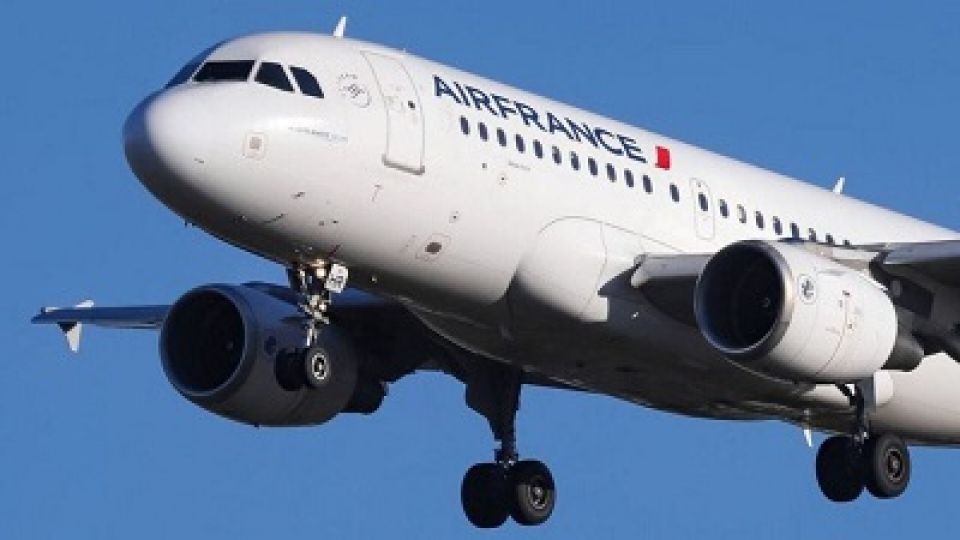from ABDULLAHI ABUBAKAR in Niamey / TINTSWALO BALOYI in JHB Africa Bureaus
NIAMEY, (CAJ News) – THE military coup in Niger has ceased being merely a political crisis for the West African region but degenerated into an international aviation and economic disaster.
The aviation sector is bearing the brunt of the decision by the military leaders of the July 26 takeover to close the country’s airspace at the beginning of this week, citing the likelihood of military intervention by neighbouring states as well as an unnamed superpower.
The announcement followed the lapse of a deadline set for Niger by the Economic Community of West African States (ECOWAS) last week to reinstate the deposed president, Mohamed Bazoum.
On the issue of airspace, ECOWAS members closed air borders (alongside land borders) with Niger, as part of sanctions after the coup.
The abrupt shutdown of airspace by Niger, the second following the one on the day of the coup, has resulted in some airlines diverting and cancelling flights, which has caused inconvenience to travellers.
Some airlines plying the Europe- Sub-Saharan Africa axis were forced to make hard turns to avoid Niger, rerouting via Nigeria as well as Burkina Faso and Mali.
Re-routing entails extra kilometers to flights, which increases the fuel costs and increased flight time.
Flightradar notes rerouting adds around 1 000 kilometres to a trip.
An increase in the fuel needed per affected trip adds to the operational expenses of airlines, a setback to an industry that is recovering from the impact of the COVID-19. There are fears they could increase fares to cushion themselves from the extra financial burden.
South Africa has raised concern.
“Cabinet has noted the impact the security situation in Niger is having on air-travel between South Africa/Southern Africa and Western Europe, with negative implications for business and individuals alike and the airline industry that is just starting to recover from the devastating ravages of the COVID-19 pandemic.”
Air France, British Airways (BA) and KLM and Swiss Air were among those affected by the ad-hoc airspace closure by the junta running Niger.
BA confirmed the London to Johannesburg flight and Nairobi-Cape Town service had been diverted on the day of the closure.
“We’ve apologised to those customers affected for the disruption to their journeys,” BA stated.
Air France, the flagship carrier from Niger’s ex-colonial master, has suspended flights to Niger as well as Burkina Faso and Mali.
Burkina Faso and Mali, also under military rule, have backed Niger in its fallout with ECOWAS.
There is also growing discontent with France among these three countries, with French facilities targeted during civil unrest that has followed the coups.
“Following the Coup in Niger and due to the geopolitical situation in the Sahel region, Air France has had to adapt its flight schedule to Niamey (Niger), Bamako (Mali), and Ouagadougou (Burkina Faso),” Air France stated.
“In liaison with the French authorities, Air France is constantly monitoring developments in the geopolitical situation in the areas served and overflown by its aircraft and reiterates that the safety of its customers and crews is its top priority.”
Flightradar sees the closure of Niger’s airspace dramatically widening the area over which most commercial flights between Europe and Southern Africa cannot fly. Flights must already take a detour around Libya and Sudan.
The aviation think-tank, OPS Group, concurred, noting the shutdown added an extra challenge for flights through the continent amid airspace closures and risk warnings.
In Sudan, the airspace remains closed to all civilian flights following a military coup in April. Sudan’s current ban on flights went into effect at the end of July.
In neighbouring South Sudan, air navigation services remain suspended above flight level (FL) 245 (or 24 500 feet – 7 467,6metres) following the coup in Sudan. Aircraft flying over are suspended.
Due to risks associated with the civil war that has been ongoing since 2014 in Libya, a flight ban is in place for United Kingdom and United States operators.
Some European countries prohibit their civil aircraft from flying in Libya’s airspace.
A European Union Aviation Safety Agency (EUASA) Conflict Zone Information Bulletin is valid until October 31 this year. It warns operators of high risk due to the hazardous security situation, with the presence of terrorist organisations and ongoing high intensity military operations.
“There is a high risk of both intentional and unintentional attacks to civil aviation at all altitudes,” the bulletin advises.
Some adjacent countries have airspace warnings.
Several states have advised against travel to N’Djamena in Chad, a country where crime, kidnapping and terrorism are a risk.
In Egypt, the UK and Germany have active airspace warnings. Both countries essentially advise against overflights below FL260 in the northern part of the Sinai region.
There are no official airspace warnings in place for the Central African Republic but the general advice is to avoid landings here completely, amid the dire security situation.
The closure of all overflying traffic in Niger halts evacuations.
Before the shutting down of the airspace, France evacuated more than 1 000 people, mostly its citizens, African, European and Latin American citizens as well as those from the Middle East and Asia who wanted to leave Niger.
Those evacuated via the Diori Hamani International Airport comprised 1 079 nationals of 50 nationalities, including 577 French.
The situation remains delicate in Niger, with the military establishment there continuing to defy ECOWAS, which has lurched into divisions on military intervention in Niger.
Meanwhile, even before the series of airspace closures, travelling between some African countries has always been daunting. A flight between African cities may entail thousands of kilometers on transfer through the Middle East or Europe in between.
– CAJ News

